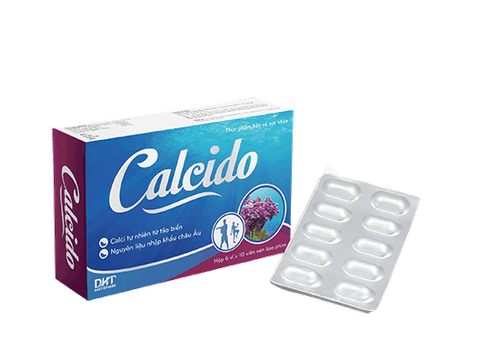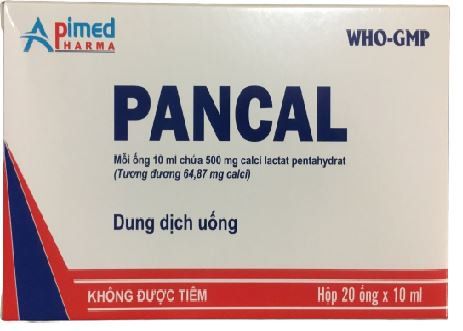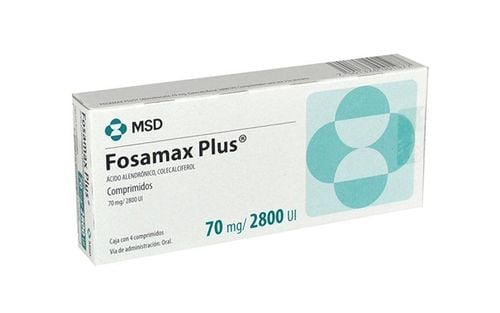This is an automatically translated article.
Vitamin D is essential for the regulation of the minerals calcium and phosphorus in the body to maintain proper and healthy bone structure. A lack of vitamin D increases the risk of several diseases.1. What does Vitamin D do?
Vitamin D is one of the important vitamins for the body. When the body is deficient in vitamin D can lead to many health consequences, increase the risk of certain diseases such as type 1 diabetes, muscle and bone pain, and more seriously, can lead to breast cancer. , colon, prostate, ovaries, esophagus, and lymphatic system.
Vitamin D is essential for building and maintaining strong bones, as calcium is a major component of bones and can only be absorbed by the body in the presence of vitamin D. Your body makes vitamin D in the presence of light. The sun shines directly on the skin and converts chemicals in the skin into the active form of the vitamin (calciferol).
Vitamin D isn't found in many foods, but you can get it from vitamin D-fortified milk, fortified cereals, and fatty fish like salmon, mackerel, and sardines.
The amount of vitamin D your skin makes depends on many factors, including time of day, season, latitude, and skin pigmentation. Depending on where you live and your lifestyle, vitamin D production may decrease or disappear completely during the winter months. Sunscreen can also reduce vitamin D production.
Older people are also at risk for vitamin D deficiency because they spend less time in the sun and have fewer “receptors” in their skin that convert sunlight converted to vitamin D. Low vitamin D in their diet, difficulty absorbing vitamin D even when they eat enough, and problems with kidney function.
Vitamin D supplements may be essential for the elderly, those living in northern latitudes, and those with darker skin who need more time in the sun, but don't take vitamin D supplements on your own. Let's talk. Talk to your doctor before considering taking a vitamin D supplement is the best option for you.
2. Recommended dosage of vitamins
The Food and Nutrition Board of the National Academy of Sciences has established the Recommended Dietary Allowance (RDA) for vitamin D to represent An amount sufficient daily to maintain bone health and normal calcium metabolism in healthy individuals. The RDA for vitamin D uses international units (IU) and micrograms (mcg); The biological activity of 40 IU is equivalent to 1 mcg. Although sunlight can be a major source of vitamin D for some people, the RDA for vitamin D is therefore established on the basis of minimal sun exposure.
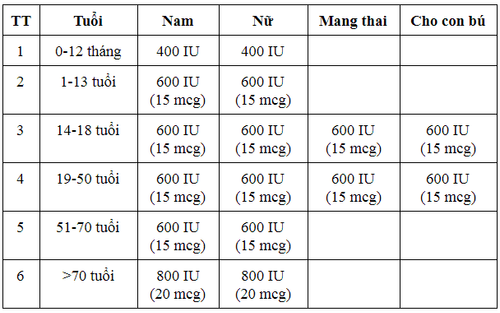
Nhu cầu Vitamin D khuyến nghị
3. How long to take vitamin D?
Adults by mouth
For people with vitamin D deficiency: 50,000 IU per week for 6 - 12 weeks. To prevent osteoporosis: 400-1000 IU/day of vitamin D3 (also known as cholecalciferol) in the elderly. Usually it is taken with 500-1200 mg of calcium per day. Some experts recommend higher doses of 1000-2000 IU daily in combination with calcitriol 0.43-1.0 mcg/day for a maximum duration of 36 months. To prevent bone loss from corticosteroid use: 0.25-1.0 mcg/day of vitamin D in the form known as calcitriol or alfacalcidol for 6-36 months. For heart failure: 800 IU/day of vitamin D alone in the form of cholecalciferol or with 1000 mg/day of calcium for 3 years. Or 400 IU/day of vitamin D in the form of cholecalciferol used with 1000 mg/day of calcium in postmenopausal women. For bone loss due to hyperparathyroidism: 800 IU/day of vitamin D in the form of cholecalciferol for 3 months. Multiple Sclerosis: 400 IU daily of vitamin D. To prevent respiratory infections: 300-4000 IU of vitamin D in the form of cholecalciferol for 7 weeks to 13 months. To prevent tooth loss in the elderly: 700 IU daily of vitamin D in the form of cholecalciferol used in combination with calcium 500mg/day for 3 years. How long do babies take vitamin D for?
The American Academy of Pediatrics recommends the following:
If you are breastfeeding give your baby 400 IU of vitamin D daily - starting soon after birth. Continue to give vitamin D to your baby until the baby is weaned from breast milk and the baby continues to drink about 1 liter of milk per day with vitamin D fortified formula or after 12 months of age, she has been drinking whole cow's milk, then stop. If your baby is eating less than 1 quart of vitamin D-fortified formula per day, give her 400 IU of liquid vitamin D per day - starting in the first few days after birth. Continue giving your baby vitamin D until he is eating at least 1 quart of milk per day.
4. Side effects of vitamin D
When used in appropriate doses, vitamin D is safe for humans. However, taking too much vitamin D can cause unwanted effects. Children 9 years of age and older, adults, pregnant and lactating women who take more than 4,000 IU per day of vitamin D may experience the following:Nausea Vomiting Poor appetite Constipation Weakness Weight loss
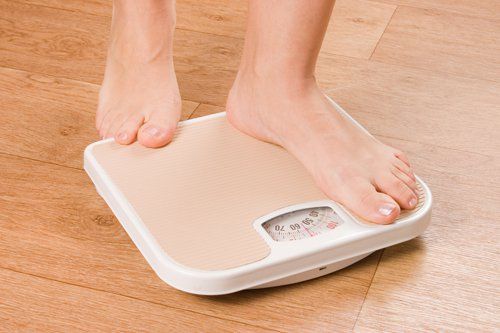
Vitamin D có thể gây nên giảm cân không mong muốn
Possible interactions include:
Aluminum: Taking vitamin D and aluminum-containing phosphate binders if used for a long time can cause May increase harmful aluminum levels in people with kidney failure. Anticonvulsants: Anticonvulsants such as phenobarbital and phenytoin (Dilantin, Phenytek) increase the breakdown of vitamin D and decrease calcium absorption. Atorvastatin (Lipitor): Taking vitamin D may affect how well this cholesterol medication works. Calcipotriene (Dovonex): Do not take vitamin D with this psoriasis drug because it can increase blood calcium when taken together. Cholestyramine (Prevalite): Taking this weight loss drug may decrease the absorption of vitamin D. Digoxin (Lanoxin): Avoid taking high doses of vitamin D with this heart medication because high doses of vitamin D can cause hypercalcemia, increases the risk of heart problems that lead to death from digoxin. Diltiazem (Cardizem, Tiazac): Avoid taking high doses of vitamin D with this blood pressure medication because high doses of vitamin D can cause hypercalcemia, which may decrease its effectiveness. Orlistat (Xenical, Alli) reduces the absorption of vitamin D. Thiazide diuretics used to treat high blood pressure can decrease urinary calcium excretion, leading to increased blood calcium levels if you are taking vitamin D. Steroids: Taking steroid medications such as prednisone can decrease calcium absorption and reduce the body's metabolism of vitamin D. Verapamil (Verelan, Calan): Avoid taking high doses of vitamin D with this medication because high doses of vitamin D can cause hypercalcemia and decrease its effectiveness.
Please dial HOTLINE for more information or register for an appointment HERE. Download MyVinmec app to make appointments faster and to manage your bookings easily.
References: Mayoclinic.org, Webmd.com, Ods.od.nih.gov



